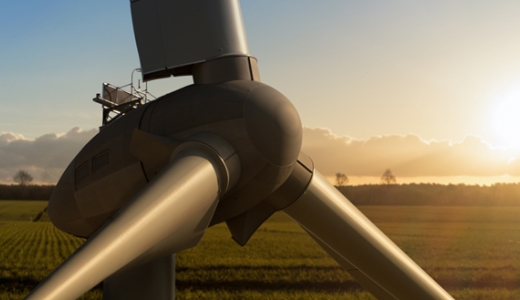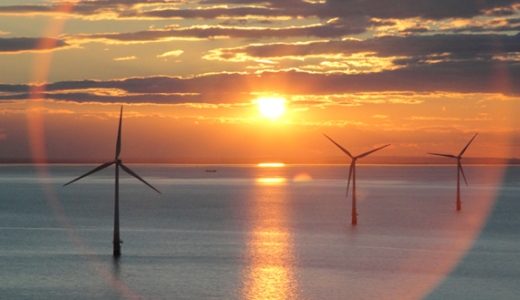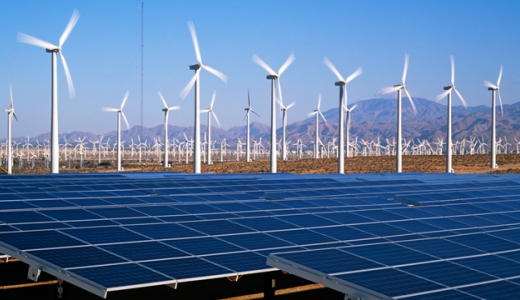Can wind turbine blades be recycled?
Wind power is a key provider of clean, cheap, zero carbon electricity. We’re often asked what happens to old wind turbine blades and whether they can be recycled at the end of their operational lives, so here are the answers to questions we most commonly receive.
Wind turbines harness the kinetic energy of wind and convert it into mechanical energy to generate electricity. Electricity generated in this way is self-replenishing and produces no emissions harmful to our earth’s atmosphere, which is why it’s considered a form of renewable energy.
But for a form of energy to be considered truly ‘green’ – where it has a zero or less-than-zero impact on the environment across its lifespan in terms of waste and emissions – it’s important to also consider its end-of-life environmental impact.

What happens to old wind turbine blades?
As the first commercial wind turbines came online in the mid to late nineties, they are now coming to the end of their operational lives and facing decommission, posing the question about what happens to their waste materials.
There are some misconceptions that wind turbines have a harmful impact on the environment because some components, such as their blades, cannot be recycled.
While it’s partially true that some can’t be recycled, manufacturers and operators are going to great lengths to ensure they are ultimately as sustainable as possible; finding ways to either recycle, reuse or rebuild them using recyclable materials in the future.
What are wind turbine blades made of?
Around 96% of a wind turbine is made from recyclable materials. Their outer shell, shafts, gearing and electrical components are typically made from steel, copper, aluminium, other precious metals and recyclable plastics.1
There are more than 8,000 parts to one wind turbine and they can have an operational lifespan of up to 25 years (most last around 20-25 years).2 They can mostly be recycled at the end of this working life and have increasingly been made from reused materials that have already been recycled.
The blades are made from different materials, most of which is fibreglass. The average blade on a typical onshore wind turbine measures around 165ft (50m) in length. However, there is a growing trend for taller turbines – often found offshore at sea – with blade spans of anywhere up to 260-290ft (80-90m) in length.2
Are the blades disposed of or reused?
Fibreglass is not totally recyclable. It’s non-biodegradable and made up of a composite of very fine strands of plastic and glass, which is extremely difficult to process at the point of recycling. Instead, it’s usually discarded as waste at landfills or incinerated.
However, while most first-generation commercial blades are being treated as waste, not all of them are destined for landfill. There are several innovative ways their raw materials are recycled to be used in other building materials or repurposed entirely in new structures.
Engineers and scientists have found a way to turn fibreglass into a key component used in the production of cement – an important material used in everyday construction. They are also finding ways to repurpose turbine blades as structural elements in their entirety – these include bike sheds in Denmark, noise barriers for highways in the US, ‘glamping pods’ across festival sites in Europe, or as parts of civil engineering projects, such as pedestrian footbridges, in Ireland.3
Could wind turbines become 100% sustainable?
For wind turbines to be considered totally sustainable they must be built from 100% recyclable products. That’s why engineers across the world are now focusing efforts on designs that use materials such as thermoplastics that are biodegradable, or that can be reconstituted at the end of their lives.1 and 4
Needless to say, even in their current form, the positive environmental impact of wind turbines far outweighs the negative, in terms of the critical role they play in reaching a net zero future.
Last updated: 28 Apr 2023
The information in this article is intended as a factual explainer and does not necessarily reflect National Grid's strategic direction or current business activities.




